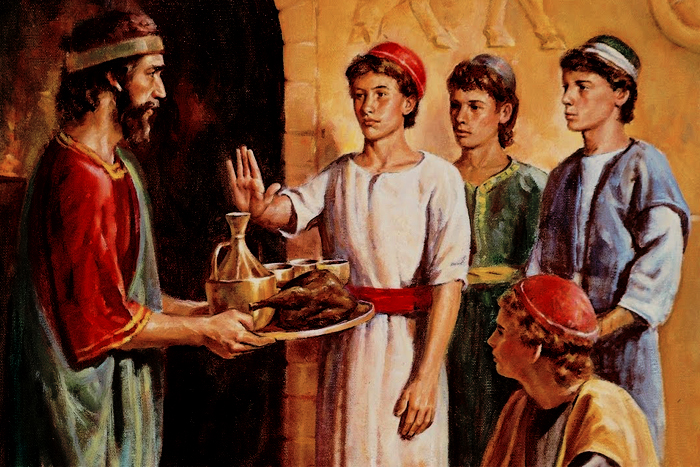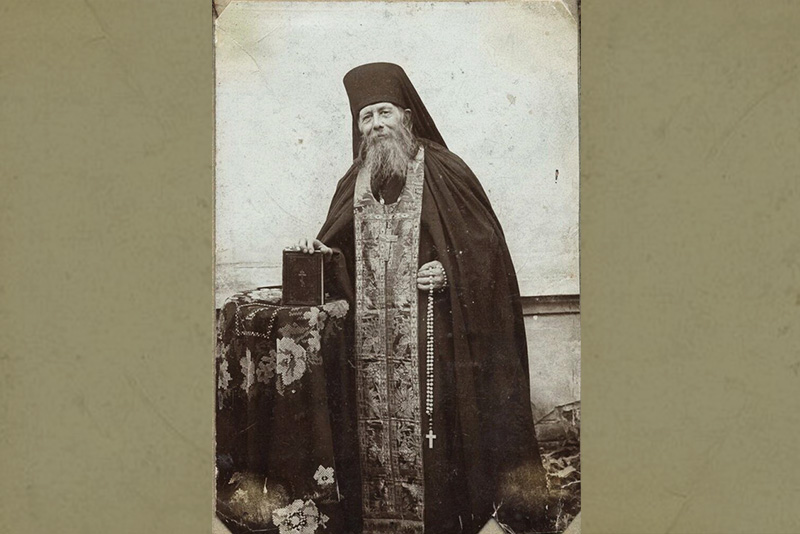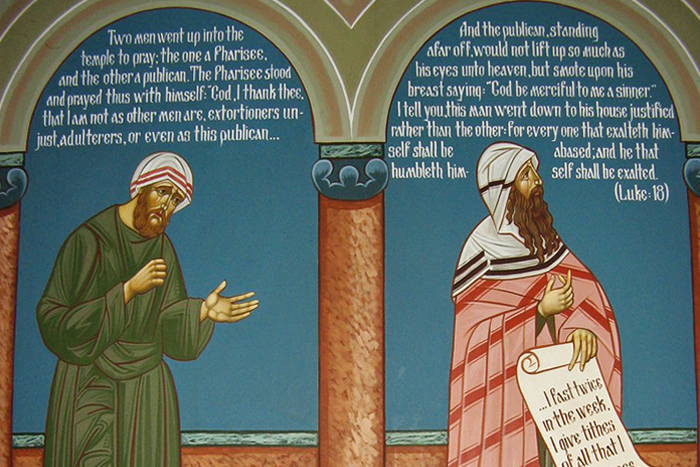
(Holy Prophet Daniel and the three holy youths Ananias, Azariah and Mishael)
The current lovers of the world and its delights do not revolt against any of the decrees of the Church as much as they do against fasting regulations. “Why fast?” they shout. “Without nutritious food, our health is lost and our mind is darkened and we can’t pray and we’re frustrated and so on.” They yell like that, and it seems to them that fasting is really evil, and to break it is not at all reprehensible and even worthwhile. In reality, though, they are exceedingly mistaken; for not only is fasting not harmful to one’s health, but in fact improves it; not only does it not darken one’s mind, but indeed enlightens it.
When Nebuchadnezzar, king of Babylon, took the Jewish captives to Babylon, he decided to choose several children from the elite Jewish families to be raised in his court. Among those children were Daniel, a twelve-year-old boy, and his three companions Ananias, Azariah, and Mishael. They received abundant but non-kosher food from the king’s table, but they did not want to be defiled by it, so they asked the warden to give them only vegetables and water. The warden refused their request at first, saying, “I fear the king: if he sees you wearied by hunger, he will take my life.” To this Daniel replied: “Make a ten-day test of us; and if after this time the young men eating the king’s food are fatter than we are, then deny us our request, otherwise fulfill it.” The warden agreed, and then what happened? And at the end of ten days their countenances appeared fairer and fatter in flesh than all the children which did eat the portion of the king’s meat (Dan. 1:15). This was before the Nativity of Christ. Let us turn to the times of the New Testament. Macarius of Alexandria ate once a week during the Great Lent and lived a hundred years. St. Symeon Stylites didn’t eat anything during the Great Lent and he lived for one hundred and three years. Saint Anthymus, too, fasted without food and lived a hundred and ten years. Some lived even longer, for example, Paul of Thebes died when he was one hundred and thirteen years old, and Alypius the Stylite lived to be one hundred and eighteen. It is clear, then, that fasting does not only not harm health but also enhances it.
As for the opinion that the mind is darkened by fasting, it is even more ungrounded than the previous one. Daniel and his companions used to fast for three years, during which time they studied. Did they lose their minds? On the contrary, God gave them knowledge and skill in all learning and wisdom (Daniel 1:17). Now at the end of the days that the king had said he should bring them in, then the prince of the eunuchs brought them in before Nebuchadnezzar. And the king communed with them; and among them all was found none like Daniel, Hananiah, Mishael, and Azariah: therefore stood they before the king. And in all matters of wisdom and understanding, that the king enquired of them, he found them ten times better than all the magicians and astrologers that were in all his realm (Dan. 1:18-20). Let us now go back to New Testament times. Macarius of Egypt, the great man of fasting, received no formal training at all; nevertheless, his writings are distinguished by a deep knowledge of theology, the soul of man, and the visible nature. Anthony the Great learned only from the book of nature and put to shame many an arrogant philosopher. The apostles, too, were not men of science, but they used to impose fasting on themselves before going out to preach, and repeatedly left the wise of this world dumbfounded, and conquered whole nations and kingdoms for Christ. What about Jesus himself? When He began his public ministry, He also fasted for forty days and forty nights. What else is there to be said about the benefits of fasting, and what else do we need to refute the arguments of the damage it might cause? There is probably nothing to convince those pleasure-seekers who reduce themselves to flesh and blood. However, true followers of Christ, who crucify their flesh with its passions and desires, will surely remain faithful to the Church regulations without need of any evidence, and will not need any proof as to the benefit of fasting.
Let us, brethren, follow the latter and flee the vanity of the former. Suppose our body is actually weakened by fasting. So what? It is not the delightsomeness and beauty of the body that a Christian should care about, but the renewal and refinement of the soul; and it is renewed and strengthened only when the body is subdued to it. Though our outward man perish, yet the inward man is renewed day by day (2 Corinthians 4:16). Amen.
Translated by The Catalogue of Good Deeds
Source: https://azbyka.ru/otechnik/Viktor_Gurev/prolog-v-pouchenijah-na-kazhdyj-den-goda/127



